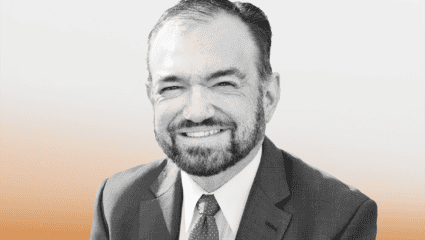
Last month, Teck Resources Ltd. (TECK), a Canadian coal and base metals company, canceled a meeting to vote on a breakup of the company, a move that materialized after it received an unsolicited $42.5 billion hostile bid from Glencore plc.
The British thermal coal giant is hoping that the withdrawn meeting will bolster its unsolicited bid, which Teck rejected as “opportunistic.”
However, the hostile offer is just one example of a recent spike in unsolicited bids involving U.S., Canadian, U.K. and even Brazilian targets, as the traditional friendly M&A market has cooled somewhat amid recessionary fears.
In many cases, strategic bidders are hoping to take advantage of beaten down stock prices, and less competition from buyout shops struggling with financing costs. Activist fund managers are also involved, manufacturing faux bids, pushing privately and publicly for higher hostile bid premiums or to quash unsolicited offers. In at least one situation, a company made a hostile bid as a last-ditch effort to effect a turnaround following an activist contest.
“We’re seeing a continued maturation of a deal space where there is a recognition that pushing the envelope through an unsolicited offer can get results,” said Ele Klein, partner at Schulte Roth & Zabel LLP.
Overall, there were 16 unsolicited or hostile bids in the first four months of 2023 in Canada and the U.S., up from just 10 in the same period in 2022, according to Georgeson Inc. Overall, there were 36 hostile bids for all of 2022 — though many more unsolicited bids are made privately.
Activist Fodder on Both Sides
In many cases activist investors are involved when hostile bids are made.
For example, after Glencore made its unsolicited offer for Teck, Bluebell Capital Partners’ Giuseppe Bivona launched an ESG campaign urging the energy giant to cancel its offer and instead spin off and wind down its thermal coal business. Meanwhile, three investors including Arisaig Partners Pte. Ltd. called an $11 a share bid by General Atlantic LP and Dragoneer Investment Group LLC to buy a Brazilian education software company “unfavorable.” (Note: The bidders recently upped their offer to $13 a share.)
In another case, TravelCenters of America Inc. (TA) agreed to be acquired by BP plc (BP) for $1.3 billion, but Arko Corp. (ARKO), a convenience store operator and fuel wholesaler, emerged with an unsolicited $1.4 billion offer. TIG Advisers LLC, an investment firm with 4.9% of TravelCenters, materialized with an activist letter urging the company to grant Arko access to its data room to help it submit a binding proposal.
“Hedge funds and [arbitrageurs] may want [TravelCenters] to bring Arko into the process, which would send a message to BP that Arko’s offer is real and it needs to raise its bid and work harder at negotiating,” ZMH Advisors founder Waheed Hassan said.
One corporate adviser on activist and hostile bid situations noted when markets are turbulent, some activists focus on shorter duration type campaigns, which can include unsolicited bids and efforts to block hostile offers, or drive sweeter deals.
“It is much riskier to go after a two-year campaign with operational goals in this market,” he said. “It is safer to agitate to get something sold in the next six months. Some activists at times will make bids themselves to drive a deal of some sort.”
Editor’s note: The original, full version of this article was published May 4 on The Deal’s premium subscription website. For access, log in to TheDeal.com or use the form below to request a free trial.
This Content is Only for The Deal Subscribers
If you’re already a subscriber, log in to view this article here.



